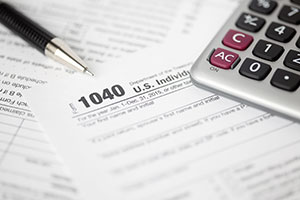In a recent decision, the U.S. Tax Court rejected a taxpayer’s attempt to use an expert witness to prove that the taxpayer’s computation of tax liability was proper. While an expert witness might play a role in tax litigation, the Tax Court ruled that an expert report, standing alone, cannot satisfy the taxpayer’s burden of proving that deductions were improperly disallowed by IRS auditors.
Facts of the Case
The IRS decided that certain taxpayers who owned shares of Total Health Concepts, LLC (“THC”) miscalculated their tax liability. THC is a Colorado company that sells medical marijuana. It elected to be treated as an S corporation, meaning profits and losses would be passed through to shareholders for tax reporting purposes.
THC reported business losses for tax years 2009 to 2011. The company calculated its income by subtracting cost of goods sold from receipts. It then claimed “below the line” deductions for wages, rent, depreciation, and other costs of doing business. The taxpayers then claimed THC’s pass-through losses on their individual income tax returns.
The IRS audited THC’s return and reclassified many of the claimed business expenses as “cost of goods sold.” It disallowed THC’s remaining “below the line” deductions. The adjustments increased THC’s taxable income and thus increased the taxable income of the taxpayers, who challenged the IRS determinations in Tax Court.
Expert Witness
When the IRS decides that a taxpayer has a greater tax liability than is reported on a tax return, it is the taxpayer’s burden to prove that the IRS is wrong. Taxpayers must usually meet that burden by producing records that substantiate the amounts and purpose of deductions that the IRS disallowed.
Instead of producing business records to substantiate THC’s deductions, the taxpayers submitted into evidence an expert report. The report was written by Jim Marty, a C.P.A. with expertise in cost accounting within the marijuana industry. The report discussed how THC should compute costs of goods sold and opined that its “below the line” deductions were proper.
The IRS moved to exclude the expert report. The IRS argued that the report consisted of legal opinions that usurped the role of the Tax Court judge. The IRS also argued that the taxpayers were not entitled to rely on an expert report as a substitute for business records that they failed to produce.
Tax Court Ruling
The Tax Court applied the federal Daubert standard to determine whether the report was admissible. It concluded that the report was “brief and summary” and that its content was unreliable. Some of its assertions of fact were unsupported by reference to any source of those facts. When the report did refer to a source, the source was not produced so that the accuracy of the assertions could be determined. In short, the report lacked “sufficient information or data” to support a conclusion that the opinions expressed were based on anything other than conjecture.
For example, the report made assumptions about the average wholesale purchase price of medical marijuana, but did not explain the basis for those assumptions. The report also assumed that the cost of goods sold equals 55{d61575bddc780c1d4ab39ab904bf25755f3b8d1434703a303cf443ba00f43fa4} of gross sales, a figure that was apparently based on industry averages. The report also included “reconstructed” tax returns as exhibits that purported to show that THC had a higher cost of goods sold than the industry average in the relevant tax years. Supporting exhibits did not include any business records showing actual sales figures or any other supporting documentation.
The Tax Court noted that the expert report was not based on personal knowledge of the taxpayers’ business. The court held that a reconstructed tax return based on industry averages was not an adequate substitute for substantiation of actual business expenses.
Finally, the Tax Court agreed with the IRS that the report consisted primarily of the expert’s legal opinions as to the types of expenses that should be included in the cost of goods sold. The court held that legal conclusions are not a proper subject of expert testimony because the court, not the expert, determines the law. To be admissible, expert opinions must explain facts, not law.




